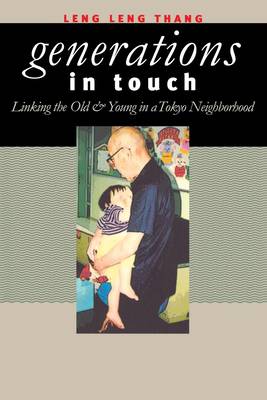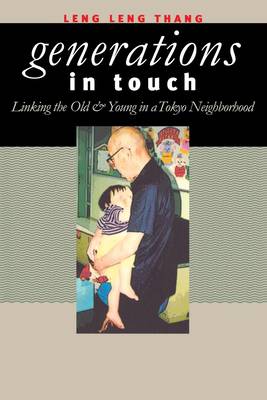
- Afhalen na 1 uur in een winkel met voorraad
- Gratis thuislevering in België
- Ruim aanbod met 7 miljoen producten
- Afhalen na 1 uur in een winkel met voorraad
- Gratis thuislevering in België
- Ruim aanbod met 7 miljoen producten
Omschrijving
A dilemma long faced by western societies--how to bring the generations together--is also of growing concern in the east. In Japan, where, until recently, the extended family often lived under the same roof, social programs designed to facilitate interaction between old and young have proliferated. Leng Leng Thang offers an in-depth view of one of those programs, an unusual social welfare institution called Kotoen. Kotoen is a pioneering facility for multigenerational living, providing both daycare for preschoolers and a home for elderly residents. With its twin mottoes of fureai (being in touch) and daikazoku (large extended family), it has been the subject of widespread media attention and has served as a model for other institutions. Yet Kotoen has never before been studied seriously.Under its director's inspiring leadership, Kotoen looks unusually promising, but Thang is wary of simplistic conclusions. Her interviews, research, and work as a volunteer at Kotoen reveal the complaints common among some elderly residents toward their surroundings in old age institutions as well as the painful persistence of the traditional family ideal. Yet far from calling the experiment a failure, Thang challenges accepted wisdom and so-called common sense to reveal the advantages and limitations of the relationships fostered between Kotoen's "grandchildren" and "grandparents." The lessons learned from Kotoen illuminate the urgency of re-engaging the generations in an aging society and provide direction for improving the quality of life for all.
Specificaties
Betrokkenen
- Auteur(s):
- Uitgeverij:
Inhoud
- Aantal bladzijden:
- 240
- Taal:
- Engels
- Reeks:
Eigenschappen
- Productcode (EAN):
- 9780801438431
- Verschijningsdatum:
- 20/03/2001
- Uitvoering:
- Hardcover
- Formaat:
- Genaaid
- Afmetingen:
- 155 mm x 237 mm
- Gewicht:
- 471 g

Alleen bij Standaard Boekhandel
Beoordelingen
We publiceren alleen reviews die voldoen aan de voorwaarden voor reviews. Bekijk onze voorwaarden voor reviews.












